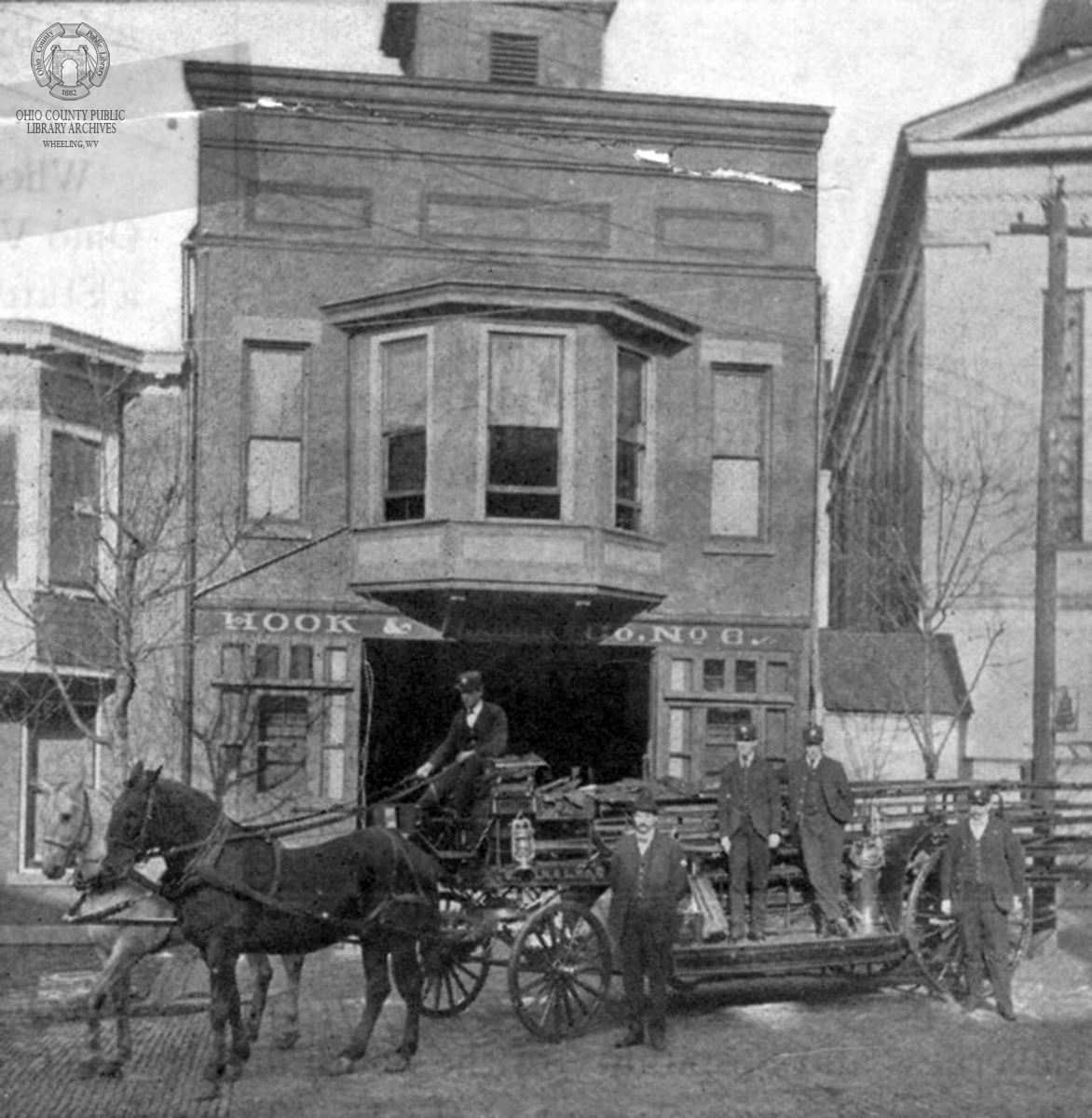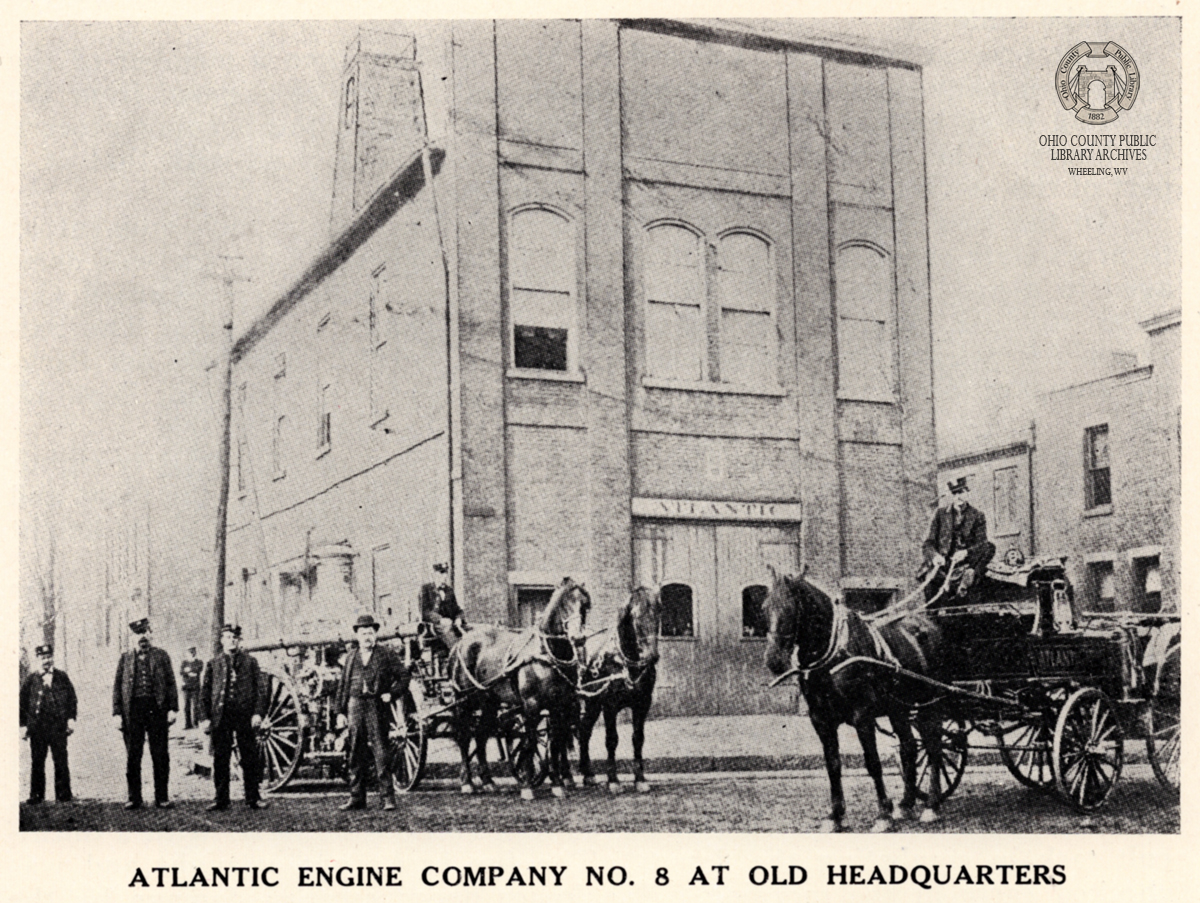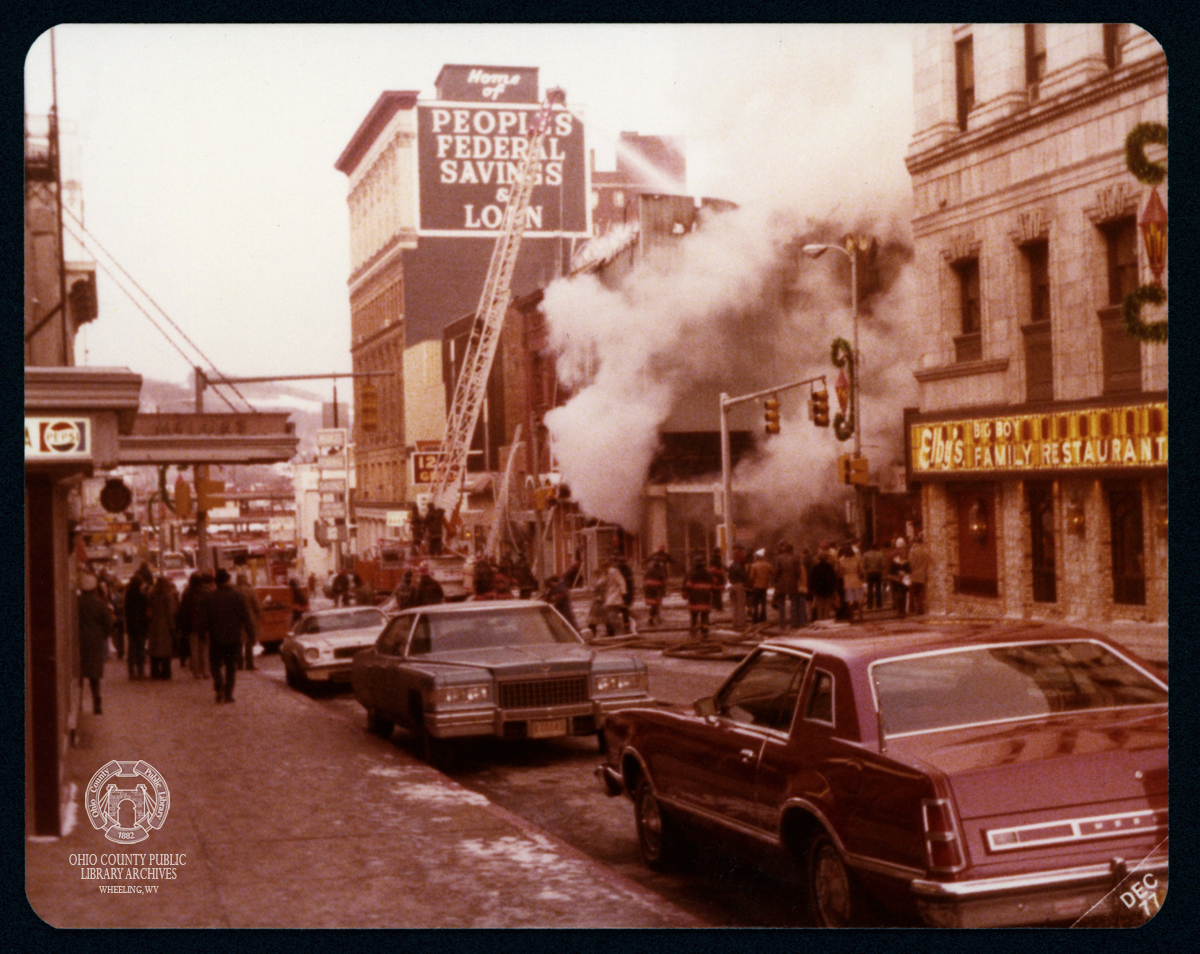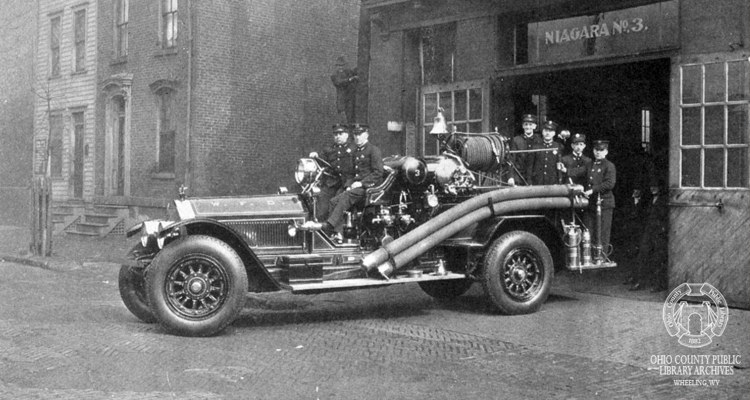Essential. Lifesaving. Game-changers. First responders and emergency preparation in Wheeling date back to the city’s founding, and their significance to our current society is undeniable.
Specifically, firehouses and firefighters in Wheeling have been at the forefront of firefighting throughout the development of the city, pioneering an effective system for the growing city.

Firefighting operations have been essential to the function of Wheeling since the 1800s. Town councils and city leaders have passed resolutions to secure the safety of Wheeling citizens and prevent the excessive devastation of fires for the past 200 years.
The importance of firefighting to the Wheeling city leaders can be traced back to 1819 when the mayor of Wheeling, Moses Chapline, signed a bylaw to purchase a fire truck, hooks, ladders, water buckets and other tools to fight fires.
Early firefighting was a process of refilling each bucket of water and pouring it over the raging fire until it finally died out. This long, slow process did save people and buildings from the devastation of fire but lacked the sophistication that modern firefighting has developed, including a water system.
The 1834 Wheeling water system completely shifted the system of firefighting from the bucket-by-bucket system to an increased reliance on hoses and the underground water system. No longer was firefighting relying on a string of people relaying buckets of water to the fire.
Instead, raw, unfiltered water could be delivered throughout the city through underground iron pipes that were still in use until 1966. The Wheeling water system brought water to Wheeling from a nearby reservoir through underground iron pipes all across Wheeling and made it more accessible for firefighters to access water. Interestingly, the Wheeling water system even predates famous old waterworks in New York City and Boston.
Throughout the 1800s, independent fire companies popped up around Wheeling — Wheeling Hose Company, Hope Fire Company, Guards Fire Company, Atlantic Engine Company, Rough and Ready Fire Company, and United Fire Company, just to name a few. And by 1869, the increasing demand on the independent fire companies also led to bitter rivalries between them, prompting a need for a more efficient firefighting system.

Inspired by Cincinnati’s firefighting system with steam engines, horses and paid firefighters, the city council passed an ordinance regulating a new paid fire department for Wheeling — one of the first few cities to do so.
Since this revolutionary change to Wheeling firefighting in 1869, Wheeling has had paid professional firefighters working to stop fires throughout the city. This essential function of society had Wheeling at the forefront by developing an efficient firefighting system with steam engine fire trucks, paid firefighters and district designations to speed up response time.
In the 1880s, the process was sped up even more with fireboxes installed throughout the city. These fireboxes allowed citizens to use the boxes to directly call the fire department rather than the previous telegraph system that predated it.
Since the initiation of these different processes in firefighting, there has been a determination to improve the process of firefighting with firefighters working to keep Wheeling safe every day.

One example of the history of firefighting in Wheeling is the Vigilant Firehouse that is now undergoing rehabilitation to become Vigilant Books and Coffee. First built in 1891, the original wood Vigilant No. 2 firehouse burned down in 1891 and was rebuilt the same year in brick. The Vigilant Firehouse was part of the Vigilant Steam Fire Engine Company that had a series of different names over the past 200 years in Wheeling. The Vigilant Fire Engine Company was one of the original four firehouses in Wheeling and was operational until 1976 when the fire station was moved down the street.
Since its closure, it has hosted several Wheeling businesses. Recognizable for its striking architecture and polychrome façade, Vigilant is just one place to look for evidence of Wheeling’s firefighting past.



